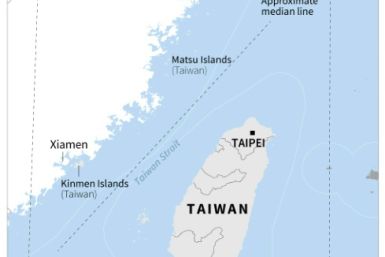Cooper Brewery Seeks End to Woolies, Coles Duopoly
Cooper Brewery Chairman Glenn Cooper called for new laws to stop the duopoly in the supermarket industry and protect local owners of farmlands. He specifically blamed Woolworths and Coles, which have engaged in a price war to the detriment of Australian farmers.
He said retailers used their dominance to pressure distributors and farm producers to agree to lower prices such as what happened to the milk industry. Such an arrangement places a threat on the viability of the Australian food industry to the detriment of consumers.
Mr Cooper said the new laws could begin with setting minimum floorspace quotas for local products in supermarkets. He proposed a minimum of 30 per cent.
By pushing for more regulation, Australia would protect its clean, green reputation for food, Mr Cooper said. He lamented the power enjoyed by Woolworths and Coles over the supply chain and pushed for greater controls similar to what other nations in the Group of 20 had put in place.
"I think it's really a problem when you have essential services like provision of food and petrol dominated by just two players - that's a real concern for the future," he stressed,
Woolies and Coles account for 63 per cent of food spending in Australia, the government's Foodmap report released in February said. The two giant supermarkets jointly have 2,300 outlets between them which make it tougher for new supermarkets to compete on price.
The report warned that if the two grocery giants would continue to cut costs by reducing prices of products, the move would increase the trend towards food imports which had risen 34 per cent in the past five years, particularly processed products.
Mr Cooper also suggested that some products sold in Australian groceries, such as juice, should be required to have a minimum level of Australian content.
He criticised the promotion by the supermarkets of generic brands, citing Woolworths' Platinum Blonde which has similar branding to Foster's Pure Blonde. Mr Cooper said the generic beer brands, which enjoy a 2.5 per cent market share, have eaten off the mainstream products of established brewers.
"People spend a lot of money investing in building brands over many years.... To be able to come in and lift off that brand-building exercise is not the way the game should be played in Australia," Mr Cooper pointed out.
While hitting Coles and Woolies, Mr Cooper also took a swipe at the growing number of farm buy-ups by foreign firms which are not scrutinised by the Foreign Investment Review Board since the national interest test on farm ownership is limited to acquisitions worth at least $231 million. As a result, farmlands fully or partly owned by foreigners has almost doubled to 11.3 per cent in the past quarter of a century, he cited data from the Bureau of Agricultural and Resource Economics and Sciences.
Independent Senator Nick Xenophon is expected to introduce legislation in April to provide the Australian Competition and Consumer Commission power to apply to the courts to have the duopoly enjoyed by Coles and Woolies broken up over the next five years. The courts would decide the most effective way to break the duopoly.
"Their market power is immense, it is unprecedented anywhere else in the world that 70 per cent of the grocery market is controlled by just two chains.... They're like two big gorillas in the room," The Sydney Morning Herald quoted Mr Xenophon.






